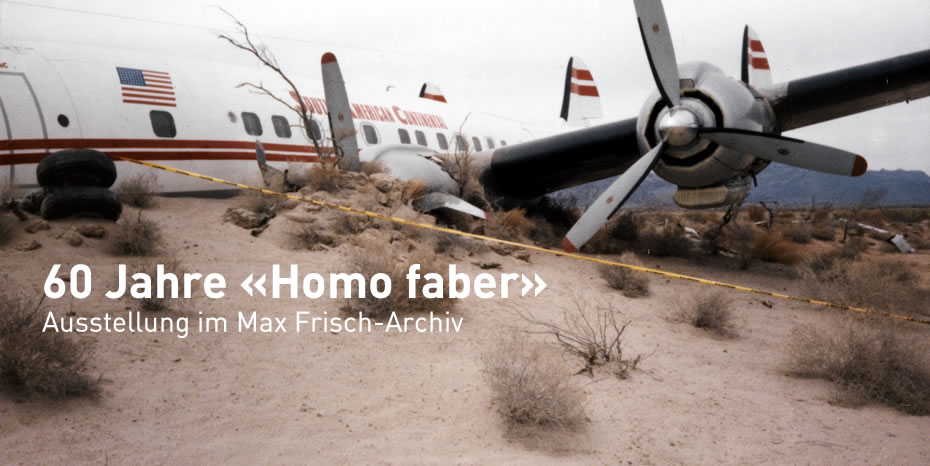Previous exhibitions

Max Frisch's works such as ‘Homo faber’, ‘Stiller’ or ‘Andorra’ have been translated into dozens of languages and are now available in numerous editions. But what did the books look like when they were first published? The exhibition presents rare and valuable volumes from the Max Frisch Archives.
1 October 2024 – 31 January 2025
Location: ETH Main Building, H floor, Collections and Archives Reading Room (H 26)
Free admission
Exhibition from 8 June to 2 September 2022
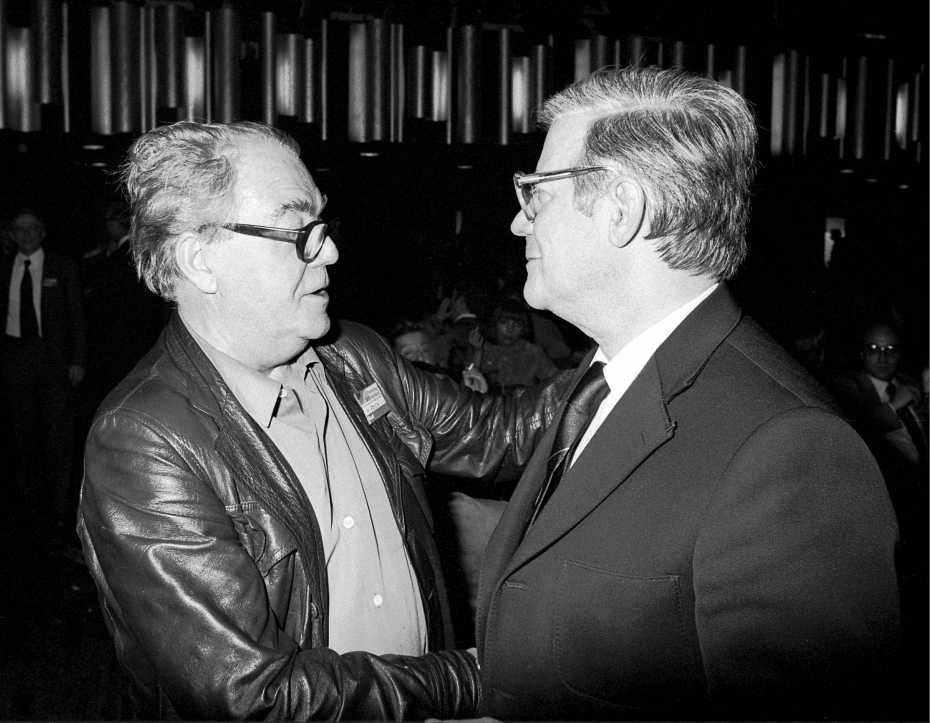
Pragmatism and utopia
Helmut Schmidt (1918-2015) is regarded as an assertive Realpolitiker who steered Germany through a series of profound crises during his time in office. The fifth German chancellor and subsequent publicist lived for fact-based, controversial debate.
An important interlocutor whom Schmidt met several times during his life was Swiss writer Max Frisch (1911-1991). Frisch sympathised with utopian thinking and asked different questions of society than the politician Schmidt.
The exhibition is a cooperative project of the Bundeskanzler-Helmut-Schmidt-Stiftung and the Max Frisch Archive. It traces the encounters between Helmut Schmidt and Max Frisch and offers insights into contemporary history from a dual German and Swiss perspective.
Opening event
On Wednesday, 8 June 2022, 18.30, the exhibition will open with a podium discussion in the Audi Max of ETH Zurich. Writer Nora Bossong discusses with Flavia Kleiner, co-founder of Operation Libero and writer Jonas Lüscher about Max Frisch, Helmut Schmidt and the meaning of utopia today
Moderation: Former member of the cantonal government Markus Notter
Programme:
18.00 Doors open
18.30 Beginning of opening event with panel discussion
Welcoming addresses: Andreas Kirstein (Deputy Director of the ETH Library), Prof. Dr Thomas Strässle (President of the Max Frisch Foundation), Dr Meik Woyke (Chairman of the Board of the Bundeskanzler-Helmut-Schmidt-Stiftung).
20.00 Drinks reception
Venue:
ETH Zurich
Audi Max, HG F 30
Rämistrasse 101
8092 Zurich
We recommend that you register for the event.
Exhibition at the Max Frisch Archive,
23 August 2021 to 31 March 2022
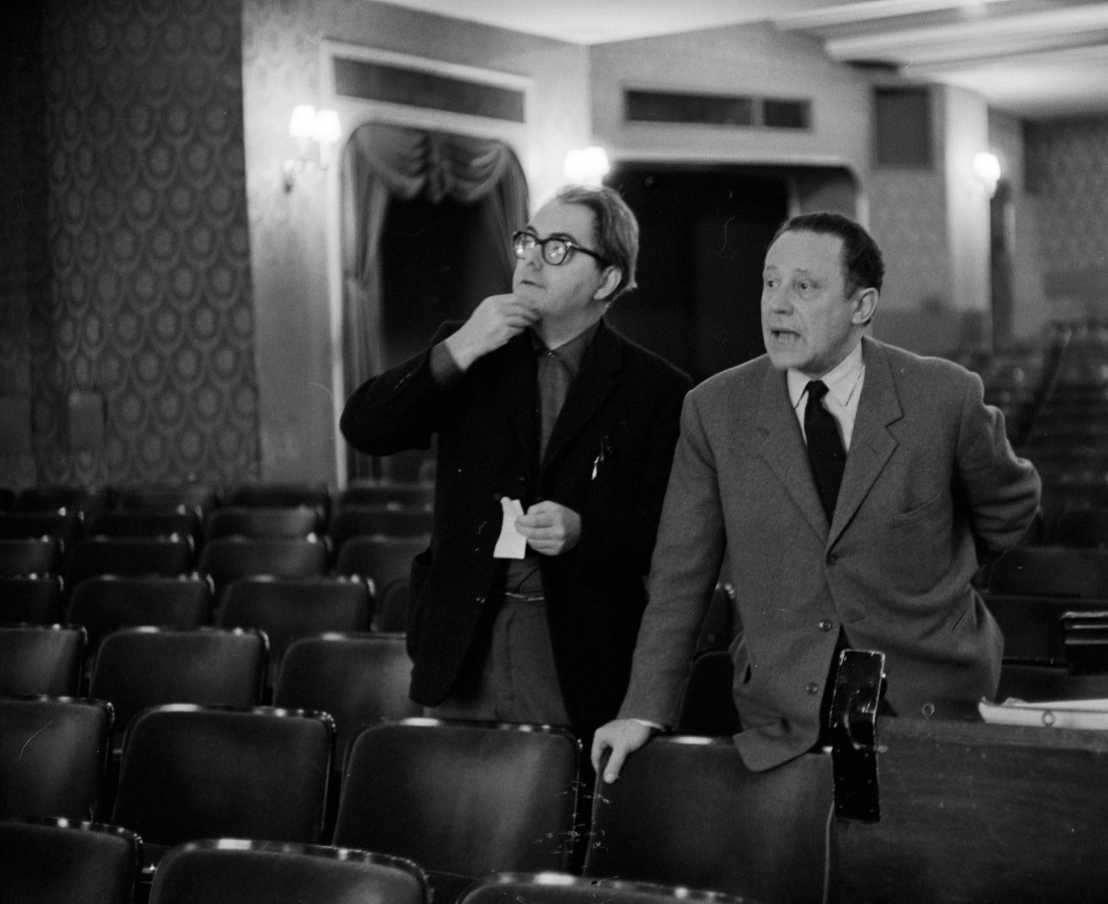
The Schauspielhaus Zürich forged Max Frisch’s reputation as a playwright. Almost all his plays premiered there. He enjoyed a unique artistic relationship with the theatre and its ensemble.
Even as a young theatre goer, Max Frisch pondered as to “why people, adults who have enough pocket money and no homework, don’t spend every evening at the theatre. For that was the life.”
From the mid-1940s onwards, the Schauspielhaus became Max Frisch’s creative hub. There he met his patron, Kurt Hirschfeld, and it was during this period that he also met Bertolt Brecht. By 1961 at the latest, with the premiere of his play "Andorra", he had become a celebrated playwright of international fame.
In the 1960s, Frisch was able to apply his dual expertise as playwright and architect during the planning stages for the new Schauspielhaus.
But other, political dramas also played out on those “boards that mean the world”. When Emil Staiger gave his speech condemning contemporary literature in 1966, it was Max Frisch who protested strongly. Following the change of directorship in 1970, Max Frisch shunned the Schauspielhaus. His return, years later, caused a sensation.
The exhibition at the Max Frisch Archive provides an insight into Frisch’s long-standing ties with ‘his’ theatre. It explores influential constellations of patrons, competition in the literary world, and political controversies.
The conception of the exhibition was based on the academic work of Prof. Dr. Ursula Amrein, who dedicated a external page study to the topic.
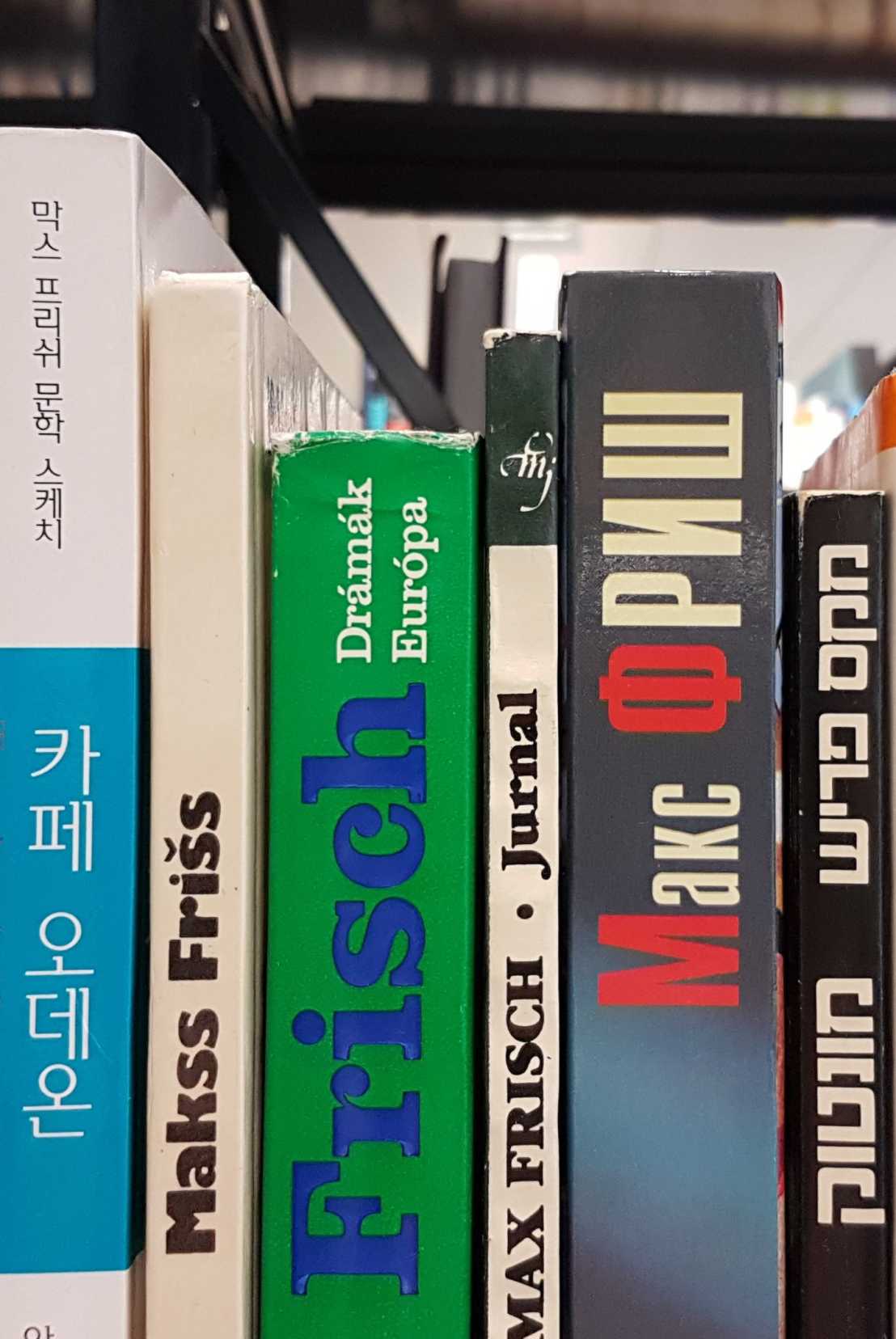
Max Frisch's novels and plays have been translated into more than forty languages. The exhibition provides an insight into the international reception of Frisch's work and shows which actors behind the scenes were involved in the dissemination of Frisch's work.
Location: Max Frisch Archive at the ETH Library
Date: 5 October 2020 – 31 March 2021
Exhibition from 25 November 2019 to 30 April 2020
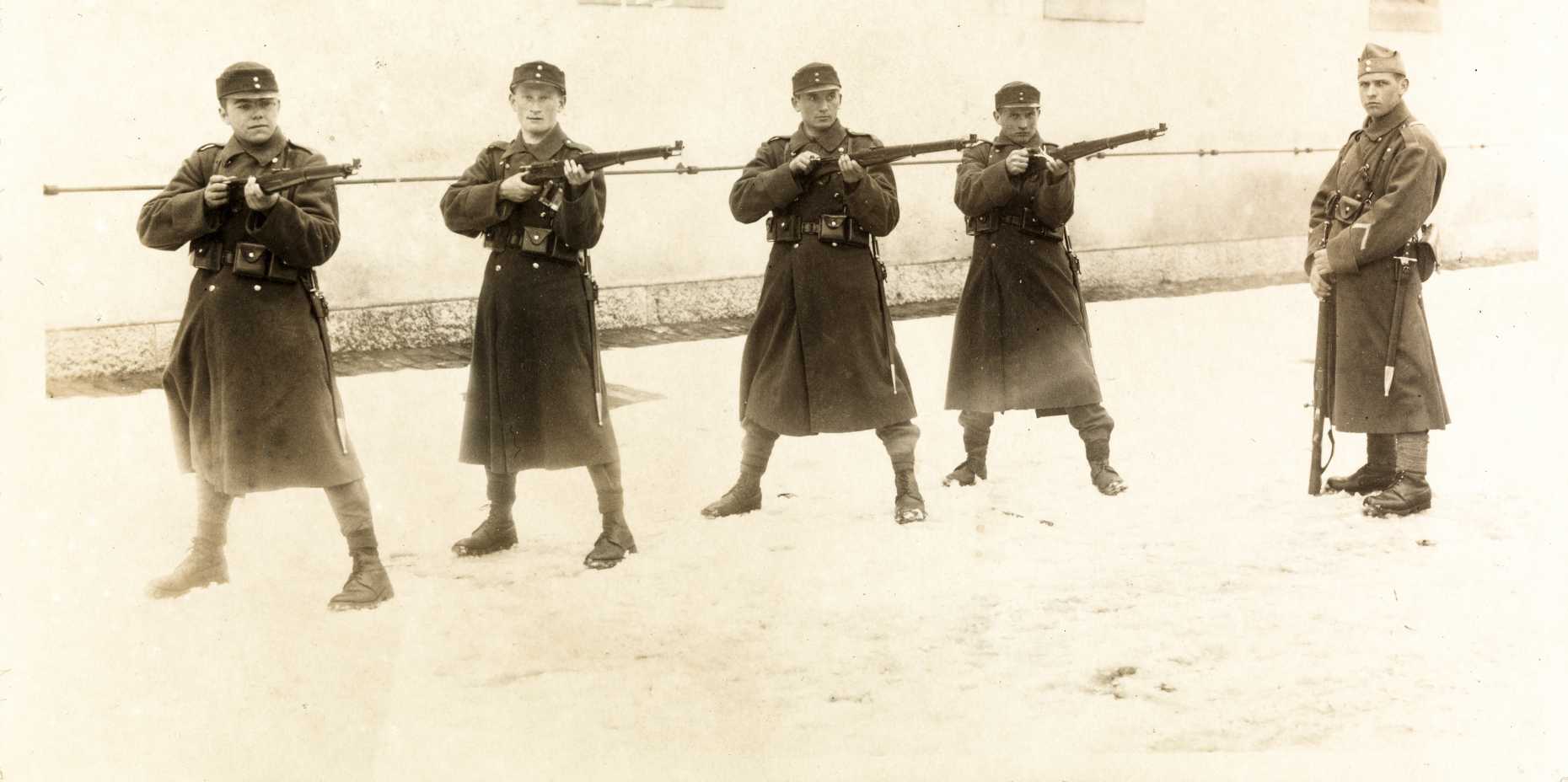
In November 1989, the Swiss public was up in arms about the referendum on the initiative for a Switzerland without an army. One of the slogans used by the Group for a Switzerland without an Army (GSoA) for the controversial venture was “Schlachten wir die Heilige Kuh!” (‘Slaughter the Holy Cow!’). Although the initiative failed at the ballots, more than one million Swiss people (35.6%) voted in favour of abolishing the Swiss army.
Max Frisch, who himself had served in active duty for 650 days during the Second World War, was initially sceptical about the initiative. He did not believe the initiative would be successful. But he shared the utopian vision of the committee behind the initiative and, over the course of the heated debate, became its most prominent proponent. He donated the prize money from the Heinrich Heine Prize to a GSoA poster campaign. On the cover of his book published in 1989, he asked the question “Schweiz ohne Armee?” (‘Switzerland without an army?’). The fictitious dialogue between a grandfather and his grandson about the significance of the army was originally performed in the Schauspielhaus Zurich as “Jonas und sein Veteran” (‘Jonas and his veteran’). It was the last play by Max Frisch.
The exhibition in the Max Frisch Archive tells the story of his involvement in the GSoA initiative and explores the significance of the military in his life and work. Thirty years on, is the question still ‘Switzerland without an army’ or perhaps – in light of the Correction Initiative – ‘Switzerland without weapons’? Markus Notter will debate this question together with his guests at a podium discussion in the Schauspielhaus Zurich.
Panel discussion at the Schauspielhaus Zurich
24 November 2019, 11.00 a.m.
with: Andi Gross, Magdalena Küng, Bruno Lezzi
Moderation: Markus Notter
Location:
Schauspielhaus Zurich
Pfauen
Rämistrasse 34
8001 Zurich
Tickets:
044 258 77 77
external page www.schauspielhaus.ch
Exhibition from 16 May to 11 October 2019
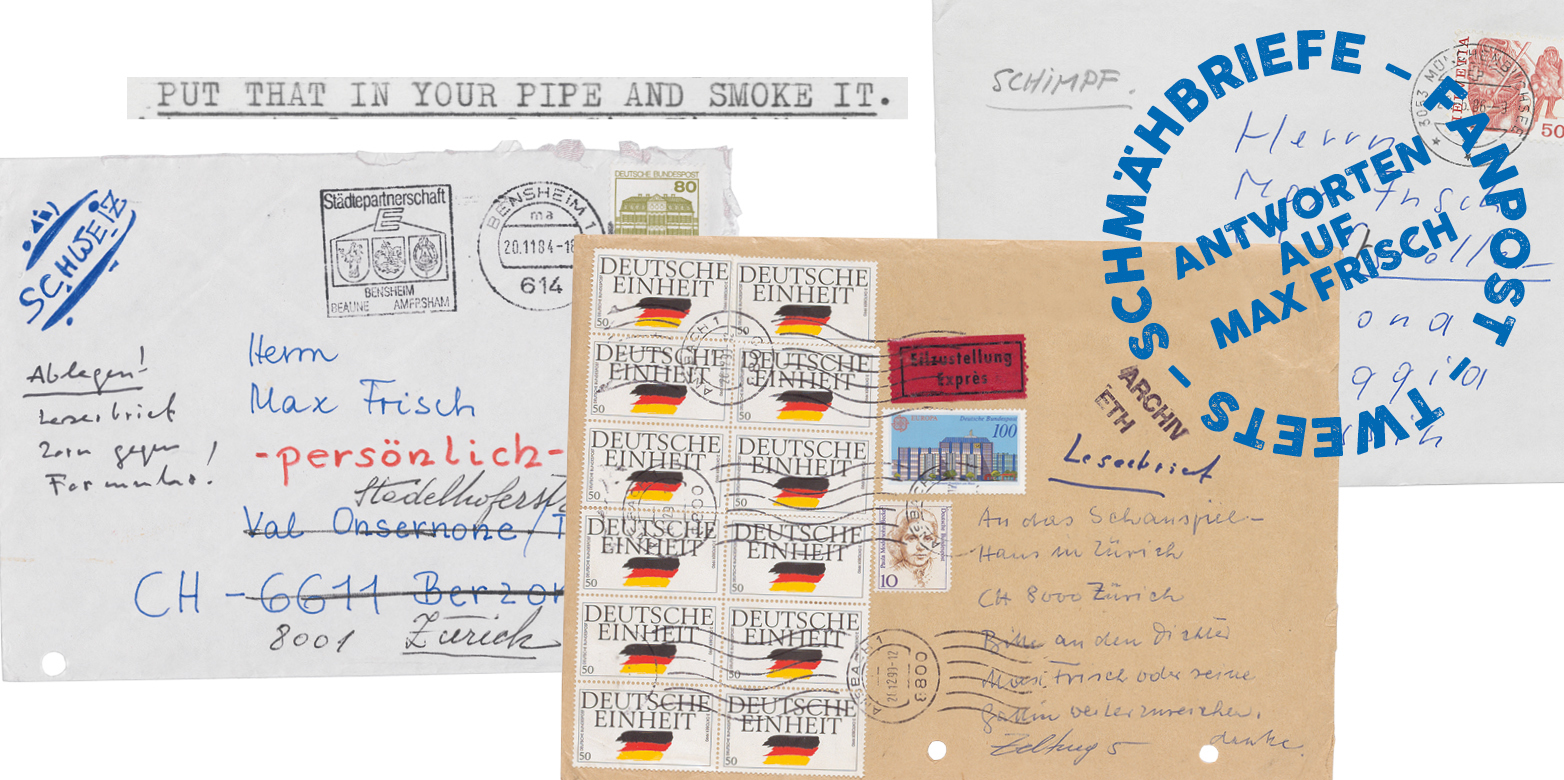
“Who is the public?” Not only was Max Frisch confronted with this question as a theoretical problem, but also on a very practical level when checking the letter box. Over 1,000 letters from readers to the author have been preserved in the Max Frisch Archive. Besides enthusiastic readers’ impressions, they also include autograph requests and even coarse insults. How did the author cope with his role as a public figure? How did he handle the admiration, how the hatred?
Max Frisch coveted a dialogue with his readership and did not leave letters unanswered with a clear conscience. However, he couldn’t respond to every request: "A writer is almost relieved when the next letter he opens contains a bill which he can settle, e.g. from the electric company – "
For the first time, the new Max Frisch Archive exhibition offers a glimpse into the wealth of letters to the author. It features unpublished documents from the past and asks how #MaxFrisch is received in the social media today.
Opening on 15 May 2019, 18:00
Welcome: Dr. Stefan Wiederkehr (ETH Library, Head of Collections and Archives)
Introduction: Prof. Dr. Thomas Strässle (President of the Max Frisch Foundation) and Dr. Tobias Amslinger (Head of the Max Frisch Archive)
Venue: ETH Zurich, H Floor, Collections and Archives Reading Room
Rämistrasse 101, 8092 Zurich
Exhibition from 25 October 2018 to 12 April 2019
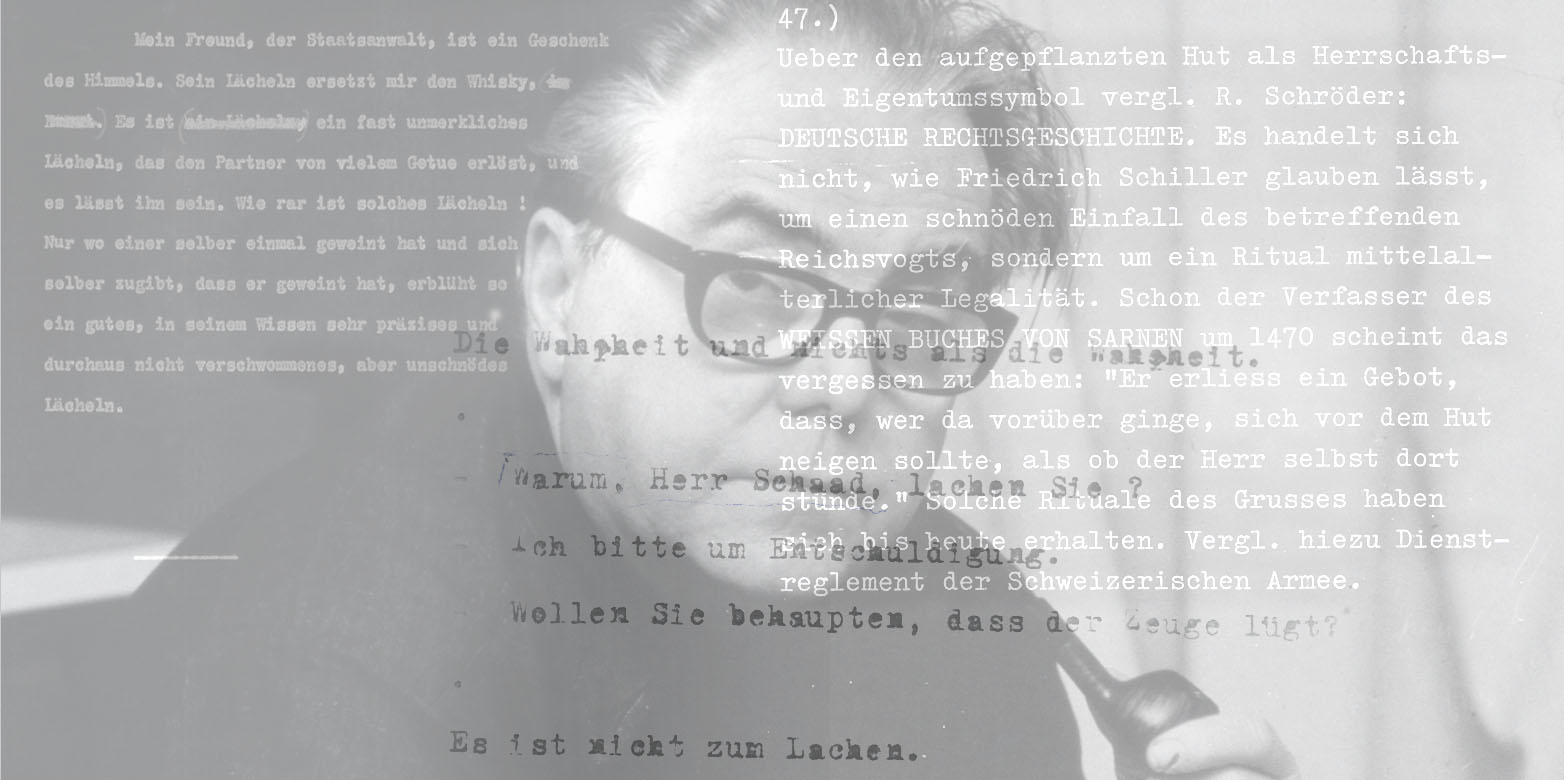
Already during his German studies, Max Frisch attended lectures on "Psychology for Lawyers". As an architect, he intervened in the debate on the land law. With a literary interest, he finally witnessed a murder trial at Zurich's jury court: he was fascinated by the "technique of finding the truth, the court as an example".
In his works he repeatedly had public prosecutors, judges and defendants appear: from the early play "Graf Öderland" (1951) to the late narrative "Blaubart" (1982). Frisch's interest was in the transformation of life into a fact - and that which is not mentioned: "acquittal for lack of evidence - / How does one live with it?
The new exhibition in the Max Frisch Archive explores the juridical thinking and rhetoric of the law in Frisch's literary work. It also follows the citizen Frisch and his critical examination of the constitution of his home country.
Opening on 24 October 2018, 18.00
Welcome: Dr. Stefan Wiederkehr (ETH-Library, Head of Collections and Archives)
Introduction: Dr. iur. Dr. h.c. Markus Notter, former member of the State Council and board of trustees of the Max Frisch Foundation
Exhibition from 18 May to 28 September 2018
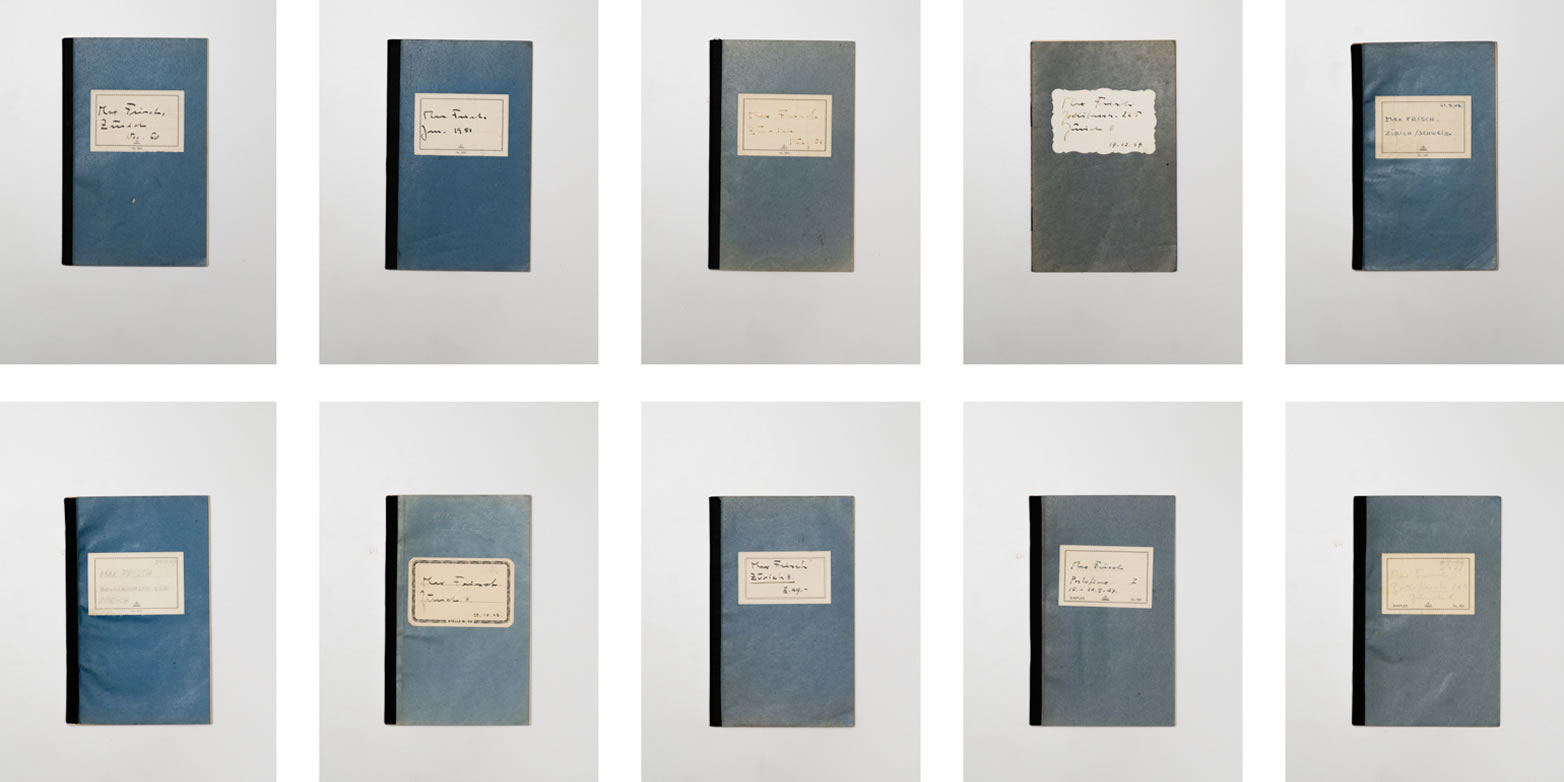
"Diaries," writes Max Frisch in 1949, "are the products of breaks, notes on the go, ideas from waiting rooms, cafés, trains or the end of the working day, before the lights go out; they are, by their very nature, always notes to the writer himself, letters without a recipient; their appeal, their essential allure, is the soliloquy, the unvoiced statements, the dealings of a spirit with itself."
Over 100 notebooks and numerous loose pages with diary-like remarks, political commentaries and literary outlines have survived at the Max Frisch Archive. These largely unpublished documents promise an immediate proximity to the present outlined and direct access to Frisch’s time. As drafts, they precede the printed works, but at the same time form a complex in their own right that relates to many things and cannot be confined to generic terms like "novel" or "drama".
For Max Frisch, evidently circumstantial notes were of central importance. He repeatedly stressed the draft-like character of his thinking and writing: "Finished things cease to be a shelter for their spirit; but work in progress is a delight, whatever it may be –"
The exhibition presents original notebooks belonging to Max Frisch. It offers a glimpse into the author's workshop and demonstrates the diversity of the themes in his notes. Internally, the books can be considered as unique specimens; externally, however, they form a series. Alan Maag, who presents the notebooks in the exhibition photographically, highlights this aspect. Maag arranges the books by colour and displays their opaque sheen everyday signs of wear and tear.
Opening on 17 May 2018, 18.00
Greeting: Dr Stefan Wiederkehr (ETH Library)
Introduction: Prof. Dr Philip Ursprung (ETH Zurich, Institute for History and Theory of Architecture)
The artist Alan Maag will be present.
Find the Download accompanying text (PDF, 297 KB) (PDF, 297 KB) (in German) here.
Exhibition from 25 October 2017 to 20 April 2018
On 20 June 1957, Max Frisch wrote to his publisher, Peter Suhrkamp: "I finished the novel this morning." A few months later, in the October, "Homo Faber" was published. After the global success of his novel "I'm Not Stiller", Frisch had managed to reinvent himself as an author yet again. The story of engineer Walter Faber, who is haunted by his fate even though he does not believe in providence, continues to resonate to this day: "Homo Faber" has been translated into around 40 languages, made into two films and performed on stage countless times.
The exhibition traces the making and impact of this classic: the long and winding road from the ruins of Greece to the publishing house in Frankfurt and into present-day classrooms.
Opening times of the exhibition
Monday to Friday, 10.00 to 17.00
Free entry
Film screening and talk with Volker Schlöndorff
28 February 2018, 18.00
ETH Zurich, CAB building, CABinett
Registration necessary:
Exhibition from 11 May to 29 September 2017
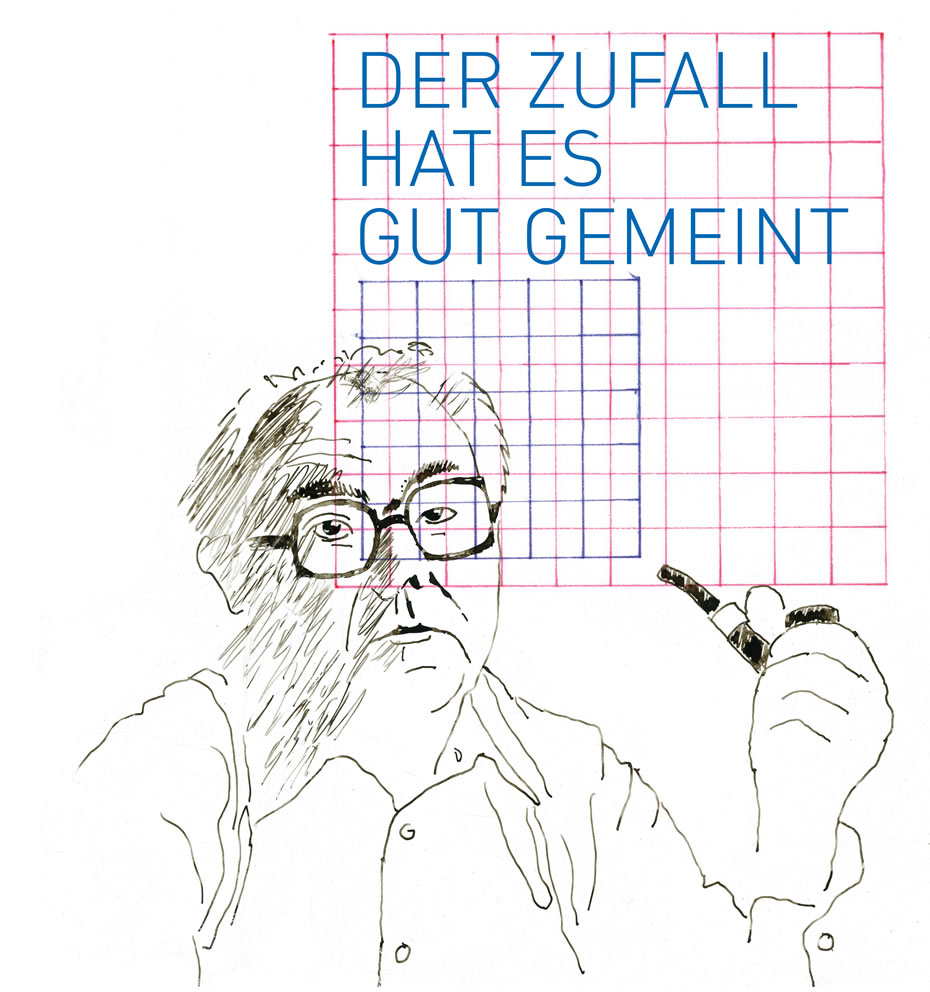
Max Frisch enjoyed a very close relationship that lasted decades with Zurich artist Gottfried Honegger (1917–2016), who would have celebrated his 100th birthday this year. They shared flats and the studio in Gockhausen, joy and sorrow. Honegger drew a series of portraits of the author. Frisch paid a literary tribute to the artist as Kabusch in "Tagebuch 1966–1971".
The exhibition at the Max Frisch Archive traces the highs and lows of this impressive friendship between two artists. It focuses on the question of chance: in life and in art. Letters and photographs from their personal papers, as well as graphic works and sculptures are on display. A separate section of the exhibition is dedicated to the computer drawings that Gottfried Honegger randomly generated in collaboration with mathematicians from ETH Zurich in 1970.
Exhibition sections
Max Frisch Archive at the ETH Library
Floor H, Reading Room Collections and Archives
ETH Zurich, Department of Mathematics
Floor G, display cases outside Room G1
